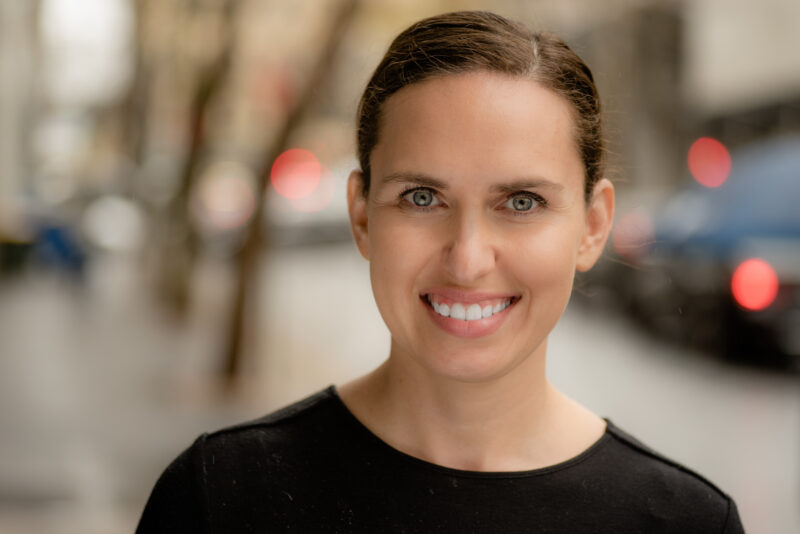
Dentsu says Yes and urges businesses to embrace a ‘once in a generation chance to right a historic wrong’
Dentsu and Cox Inall Ridgeway executives told Mumbrella the company is urging Australian businesses to take a stand for First Nations peoples, as it launches a new 36-page guide to supporting The Voice referendum this week.
The national debate on The Voice to Parliament has largely rendered many Australian businesses quiet, with the Advertising Council Australia (ACA) being one of few industry bodies to publicly nominate its support for the Yes campaign.
“There can be fear and fear of risk around taking a stand that people may perceive as a politicised stance,” Cox Inall Ridgeway general manager Yatu Widders Hunt told Mumbrella in regards to the reluctancy of businesses and organisations publicly endorsing a Yes vote in the upcoming referendum.
However, Widders Hunt said from Dentsu’s perspective, this is a human issue that is being driven by First Nations communities.
The Japanese-owned holding company last year publicly declared its support for the Uluru Statement from the Heart, and the Yes campaign for The Voice referendum, a business decision that Widders Hunt said came down to the company’s “commitment” to “listening to” and working in partnership to improve outcomes for First Nations peoples, as outlined in the organisation’s Reconciliation Action Plan.
Launching the guide was the next logical step for Dentsu, with the document available online for any business looking to formally endorse the Uluru Statement from the Heart, and support the Yes campaign.
“Fundamentally, we believe that it’s the right thing to do and that we have an absolute role to play in driving social change,” said Widders Hunt.

Dentsu’s The Voice guide provides information on the context of The Voice referendum, and how businesses can support the Yes vote.
The business is uniquely positioned to provide guidance to the industry on how best to support First Nations peoples in the upcoming referendum, being the only major agency-holding company to have a First Nations-owned and operated consulting firm.
Cox Inall Ridgeway, though working under the Dentsu Creative PR banner, is 51% owned by its First Nation’s employee trust, and 49% owned by Dentsu.
Dentsu Creative Public Relations CEO Tim Powell, who co-founded Cox Inall Ridgeway with Aboriginal leader Aden Ridgeway in 2007, urged Australians to read the Uluru Statement from the Heart to understand “the torment of a powerlessness from an indigenous person’s perspective,”
He told Mumbrella that from a Dentsu perspective, The Voice referendum is “a once in a generation chance to right a historic wrong”.
Widders Hunt, who is herself a Dunghutti and Anaiwan woman, said it will be the 97% of the population who are non-indigenous, that will decide the outcome of the referendum. She explained that given its expertise in this area, Dentsu sees itself as a leader in the industry with a role to play in ensuring “this gets up”.
While both Widders Hunt and Powell acknowledge that this is a “complex’ area for businesses who may be concerned about the views of their stakeholders, or the risk of falling out of political favour, the pair argue that it is critical for businesses to put these fears aside and act with leadership on such an important national conversation.
Besides doing the “right thing”, an endorsement of the Yes vote is a business opportunity in itself, and to communicate their commitment to reconciliation.
Many businesses have already done the groundwork for supporting the Yes vote, having engaged in indigenous affairs, implemented Reconciliation Action Plans and worked with Aboriginal and Torres Strait Islander partners.
“People talk about allyship and walking in partnership with First Nations peoples,” said Widders Hunt.
“Allyship also means responding to issues that are important to us as a community, not just as dictated by a brand or an organisation. So I think it’s also really important [for businesses] to think about their level of accountability and partnership and friendship with First Nations people.”
“The invitation has been on the table for five years now,” she continued. “What sort of partnerships will they expect to have with First Nations peoples if they did not demonstrate allyship at a critical time?”
While many businesses remain focused on the risks of taking a stance, there is also of course fall out on the other side.
Powell suggests that staying quiet during this moment could impact employers appeal to young talent, who are increasingly voting with their feet when it comes to their values and politics.
There is a risk as well of “organisational misalignment”, and creating confusion amongst stakeholders if you have a strong ESG strategy and RAP, but still choose not to influence the outcome of the referendum.
He also invokes what economists have been calling “the otherwise case”.
“The otherwise case for Australian businesses and leaders is: imagine what it’s going to feel like when you wake up the day after the referendum and it wasn’t successful, and you didn’t lift a finger to try and shape the debate.”





The ‘No’ side’s campaign is about giving the voice to regional and state players based on traditional first nation countries to tackle the specific issues they face.
Versus just some unelected Australian’s where the only qualification is if they 1) say they’re aboriginal, 2) have a community say they’re aboriginal, whatever that metric is, and 3) have some form of genetic proof that someone somewhere is aboriginal based on points 1 & 2.
Neither side is against ‘The Voice’. But pushing politics and alienating conversation into Good/Evil in a working place, encourages self-righteous corruption.
Don’t ask questions, or else get fired. That’s what Denstu have done. Referendum’s should never be forced upon anyone. Discussion should be had. And it definitely shouldn’t be influence by having your livelihood and providing for your family on the line, especially if you’re Aboriginal based on the above criteria.
This is an authoritarian move purely for social media likes.
If I’m afraid someone may think I’m a ‘no’ and have good reason for feeling it’s not right, and I’m first nations, what will happen to me if I vocalise my discontent. I’m 1/4, and white as hell. I’ll get chopped and you all know that. That’s what you’ve just done to all your employees. Fear of thought.